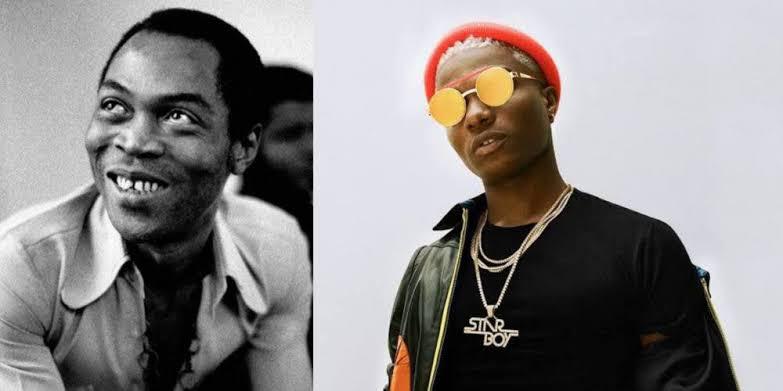Indeed, Nigeria has come a long way since gaining independence in 1960, and one of the standout sectors contributing significantly to its growth and global recognition is the entertainment industry.
The entertainment industry in Nigeria is a multifaceted sector encompassing music, movies, comedy, fashion, and lifestyle, each playing a crucial role in shaping the nation’s cultural narrative and impacting its economy.
Nollywood
The Nigerian film industry is renowned for its prolific output, making it the largest film industry in Africa and one of the most productive in the world. It has gained international recognition for its unique storytelling and production style. The industry has significantly contributed to Nigeria’s cultural influence globally, portraying the nation’s diverse narratives and realities.
Wale Adenuga’s Papa Ajasco was the first blockbuster in 1984 and one of the largest cinematic events in Nigeria. Other notable early movies include ‘Living in Bondage’ (1992) and ‘Nneka the Pretty Serpent’ (1992).
Popular actor Lateef Adedimeji won an international prize in the United States for his leading part in the prominent film ‘Ayinla’. The declaration was made at the Hollywood and African Prestigious Awards (HAPA). Alongside Ramsey Nouah and Etinosa Idemudia, the actor celebrated winning an award for Best Actor in a Motion Picture for his lead role in the movie, which he said brought him great delight after he had prayed for a cameo role in one of Tunde Kelani’s movies.
In 2022, Kunle Afolayan’s Nollywood film ‘Citation’ won the Best International Film award at the National Film Festival (NFF) in the UK. According to the director, he was shocked by the award because there had been no lobbying and it had been earned. The award was accepted by the film’s lead actors, Jimmy Jean Louis and Temi Otedola.
Nollywood actor Stan Nze won his first international prize. The actor won the Septimius award in Amsterdam, Netherlands, for ‘Best African Actor’. Seven other performers from South Africa and Nigeria, including Thabo Rametsi of Netflix’s ‘Silverton Siege’, were nominated with Stan Nze. The Ramsey Nouah-directed and Play Network Studios-produced film Rattlesnake: The Ahanna Story won the prize for the actor’s depiction of the main protagonist.
Music
In the music sector, we have since independence witnessed several growths, from the era of Juju music, highlife, apapla to that of hip-hop, afro-pop, and Afrobeat.
And from iconic musicians like Sunny Ade, Onyeka Onwenu, Osabede, Christy Essien Igbokwe, Fatai Rolling Dollars, Fela Kuti to the generation of 2face, P-Square, Wizkid, Davido, Olamide, Burna Boy, Tiwa Savage, Tems and Rema, the music industry has rapidly evolved with the latter’s brand of music spreading round the world, it have also seen the emergence of record labels, professional studios, and music video production.
Artists like Sade Adu won Her first Grammy in 1986 for ‘Best New Artist’, then another followed in 1994 with ‘No Ordinary Love’ for Best R&B Performance by a Duo or Group with Vocals. She earned her third Grammy in 2002 with ‘Lovers Rock’ in Best Pop Vocal Album and bagged her fourth in 2011 with ‘Soldier of Love’ for Best R&B Performance by a Duo.
Burnaboy is another star that has won the Grammy award. In the 63rd Annual Grammy Awards in 2021, his ‘Twice as Tall’ album won the Best World Music Album. In 2021, ‘Brown Skin Girl’, a song featuring Wizkid, won Best Music Video, and Tems in 2023, won the award of Best Melodic Rap Performance for her contribution to Future’s ‘Wait for You’.
Theater and Literature
After gaining independence in 1960, Nigerian literature garnered international acclaim with renowned authors like Chinua Achebe, Wole Soyinka, and Chimamanda Adichie. The theater scene also flourished during this period with the establishment of prominent groups like the Wole Soyinka-led ‘Nineteen-Sixty Masks’.
It is impossible to talk about African writers, including Nigerian writers, without mentioning Chinua Achebe. He is one of the most popular Nigerian writers and is often called the father of Nigerian literature.
Wole Soyinka won the Nobel Prize in Literature in 1986 and was the first African writer to receive the award. Much of his writing focuses on the exploitation of Africa by other countries, using a wide variety of metaphors to communicate his powerful point.
The digital era has transformed the consumption of entertainment. Platforms like YouTube, Spotify, Netflix, and streaming services played a crucial role in promoting Nigerian music and movies globally.
The Nigerian entertainment industry has come a long way since independence, influencing not just the nation’s cultural landscape but leaving an indelible mark on the global entertainment stage. It remains a hub of creativity, talent, and innovation, continuously evolving and adapting to changing times.
